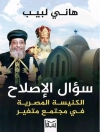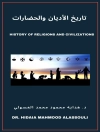Clement A. Miles’s ‘Christmas in Ritual and Tradition’ delves into the rich tapestry of Christmas customs from historical, anthropological, and literary perspectives. With a keen eye for detail, Miles examines the evolution of Christmas rituals, tracing their origins back to ancient practices and how these have transformed over centuries into modern celebrations. The book’s literary style is both accessible and erudite, blending rigorous scholarship with engaging prose, making complex historical narratives relatable to a broad readership. The detailed exploration of various cultural manifestations of Christmas provides a comprehensive understanding of how this holiday mirrors societal values and changes over time. Clement A. Miles was a noted folklorist and scholar whose deep interest in the intersections of culture, religion, and tradition significantly informed his work. His extensive research in folklore and his engagement with the social aspects of Christmas traditions testify to his dedication to uncovering the underlying meanings behind festive rituals. Miles’s scholarly background illuminates his ability to connect historical events with their cultural reverberations, portraying a holiday that transcends mere celebration. This book is highly recommended for anyone intrigued by the multifaceted nature of Christmas. Whether you are a scholar, a student of anthropology, or simply someone curious about the holiday’s profound meanings, Miles offers a thought-provoking examination that will enrich your understanding of Christmas as both a cultural and spiritual phenomenon.
عن المؤلف
Clement A. Miles (1869–1944) was an English author, renowned for his scholarly analysis of festive traditions and folk customs in his seminal work ‘Christmas in Ritual and Tradition, Christian and Pagan’ (1912). Miles meticulously delved into the historical, sociological, and theological underpinnings of the Christmas celebration, tracing its evolution from ancient pagan rites to Christian festivities. His methodical approach entailed comparing customs from various cultures, exploring their symbolic meanings, and discussing their significance within the broader context of seasonal celebrations. This comprehensive perspective shed light on the interplay between religion, tradition, and the human impulse to commemorate and sanctify time. Miles’ literary style exhibits a blend of rigorous academic inquiry and a palpable reverence for the nuanced tapestry of human cultural expression. His work remains a touchstone for students of folklore, religious studies, and anthropology, providing insights into the continuity and adaptation of traditions in the face of social and religious change. Despite the era in which he wrote, Miles’ scholarship endures, speaking to the enduring fascination with the ways in which societies mark the passage of the year and the enduring human need for ritual and celebration.




